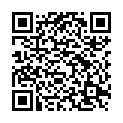|
|
|
| Module code: DFMCE-104 |
|
|
2VU (2 hours per week) |
|
2 |
| Semester: 1 |
| Mandatory course: yes |
Language of instruction:
German |
Assessment:
Written exam 60 min. (50%) and presentation (50%)
[updated 21.10.2024]
|
DFMCE-104 (P630-0127) Civil Engineering, Master, ASPO 01.10.2019
, semester 1, mandatory course
|
30 class hours (= 22.5 clock hours) over a 15-week period.
The total student study time is 60 hours (equivalent to 2 ECTS credits).
There are therefore 37.5 hours available for class preparation and follow-up work and exam preparation.
|
Recommended prerequisites (modules):
None.
|
Recommended as prerequisite for:
|
Module coordinator:
Dr. Julia Frisch |
Lecturer:
Maha Tischer, Diplômée de Maîtrise
[updated 25.03.2025]
|
Learning outcomes:
After successfully completing this module, students will:
be able to weigh up different models of intercultural competence(s) against each other
be able to explain strategies for acquiring intercultural competence(s)
be able to work on smaller intercultural training units as part of a simulation/management game
be able to discuss the Euro/US-centric perspective of various common studies and models in the field of intercultural business communication
[updated 21.10.2024]
|
Module content:
Constructive intercultural management
Intercultural learning and intercultural forms of training
Change of perspective: working with multicultural colleagues and team members in the company or within their own projects
Opportunities, limits and risks of comparative cultural models in everyday working life
Case studies and practical exercises
Possible focuses: Europe outside of Germany and France, USA
[updated 21.10.2024]
|
Teaching methods/Media:
Lecturer presentations
(Interactive) exercises and case studies
Group work
Digital content via moodle
[updated 21.10.2024]
|
Recommended or required reading:
Will be announced in the course
Multimedia-supported teaching and learning material to intensify teaching will be provided in the course and via Moodle.
[updated 21.10.2024]
|

